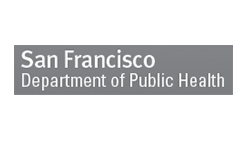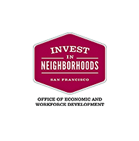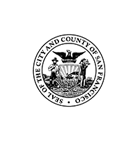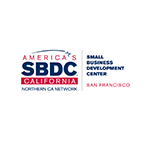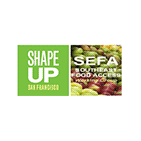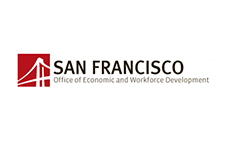About Healthy Retail SF
Healthy Retail SF defines healthy retail; creates an expert advisory group; designs program structures and tools; and implements neighborhood wide outreach meetings with store owners. Each participating store receives a tailored 13-page Individualized Development Plan (IDP) that outlines activities, timelines, persons responsible and budget in three areas: business operations, physical changes to the store, and community engagement and marketing.
Community Food Advocates called Food Guardians and Food Justice Leaders are a critical element of the model.
Healthy Retail SF is staffed by SFDPH and the OEWD where it is housed.
“San Francisco has about 1150 food retail stores, about 1000 are corner stores. We are working to support these mom-and-pop businesses while providing healthy and affordable food access, especially to underserved neighborhoods.”—Supervisor Eric Mar
The grassroots activism to provide healthy food options in the Bayview (by South East Food Access, SEFA) and the Tenderloin (by The Tenderloin Healthy Corner Store Coalition, TLHCSC on Facebook) has led to institutional change within city government. In 2013, Supervisor Eric Mar introduced legislation that created Healthy Retail SF, which is led by the Office of Economic and Workforce Development (OEWD), under the Mayor Lee’s Invest in Neighborhoods initiative, in conjunction with the Department of Public Health.
HOW THE PROGRAM WORKS:
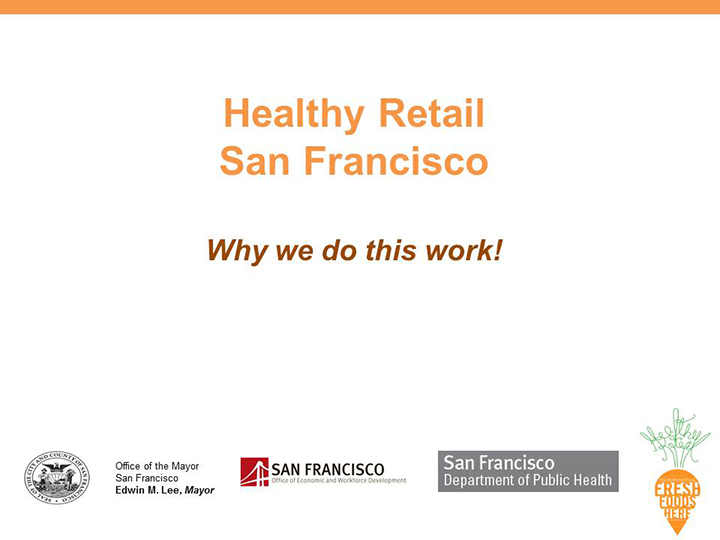
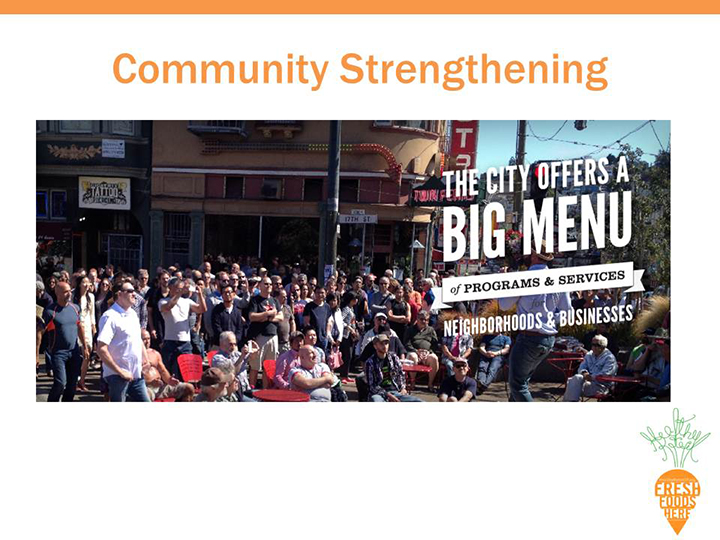
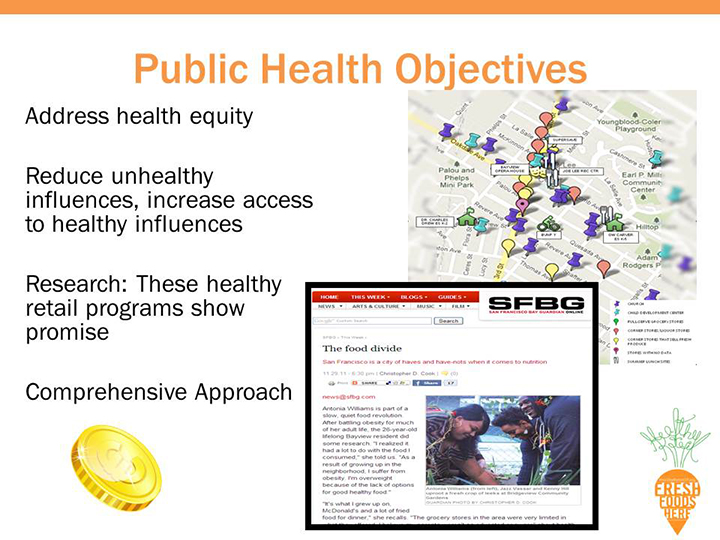
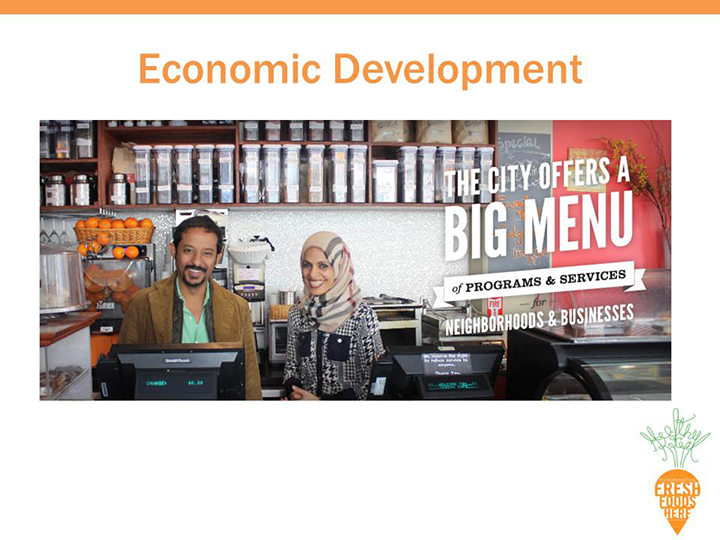
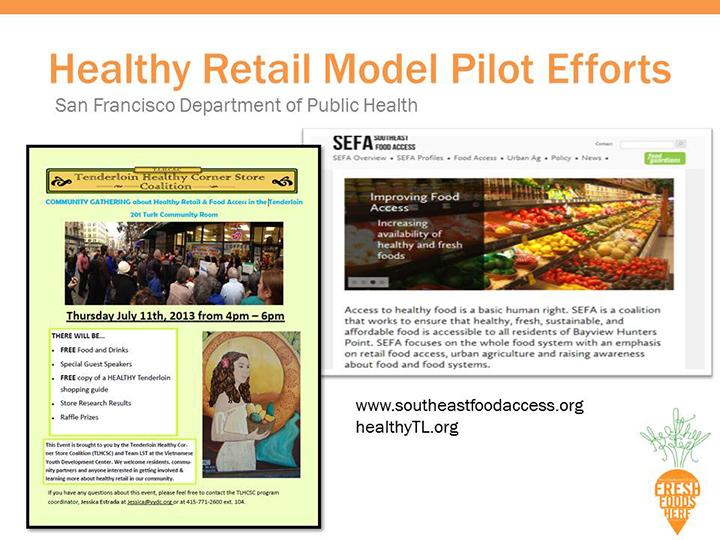
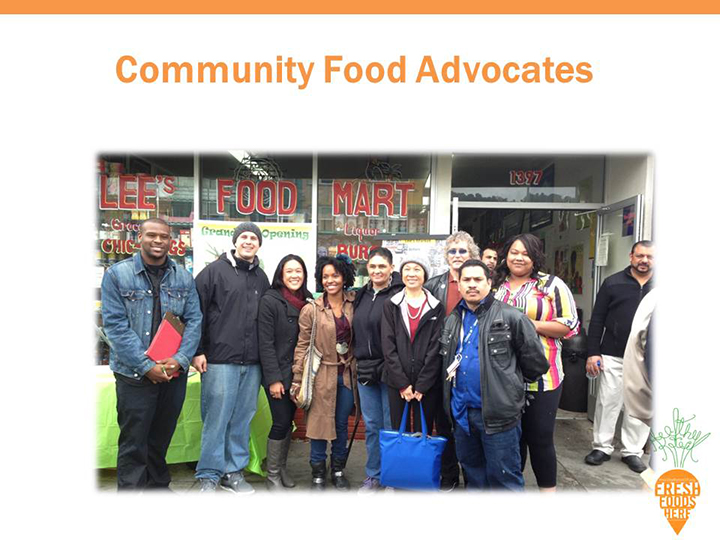
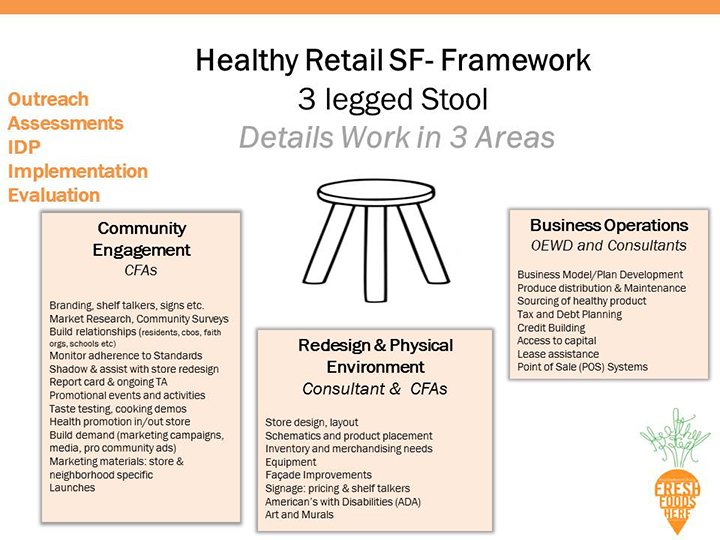
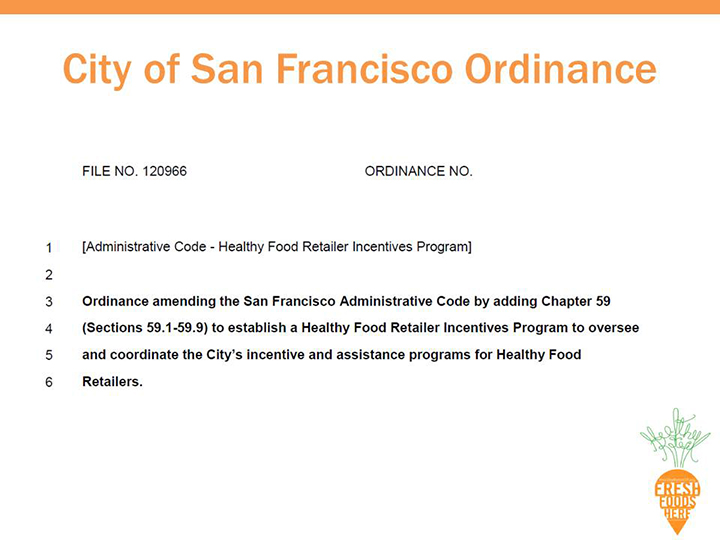
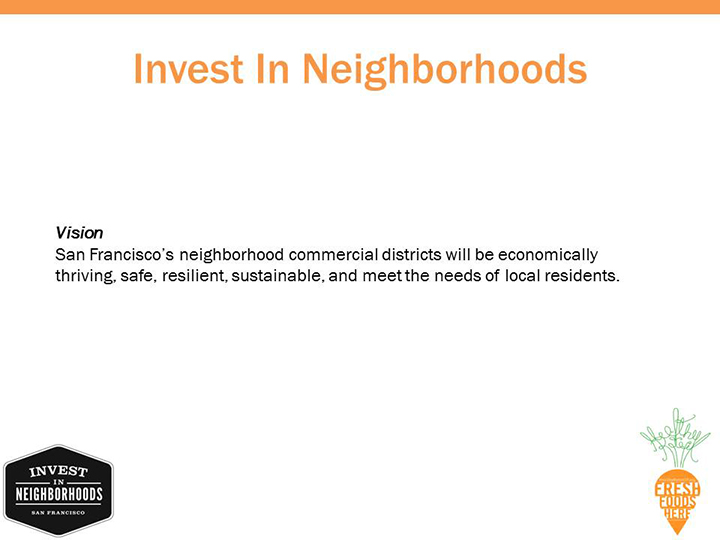
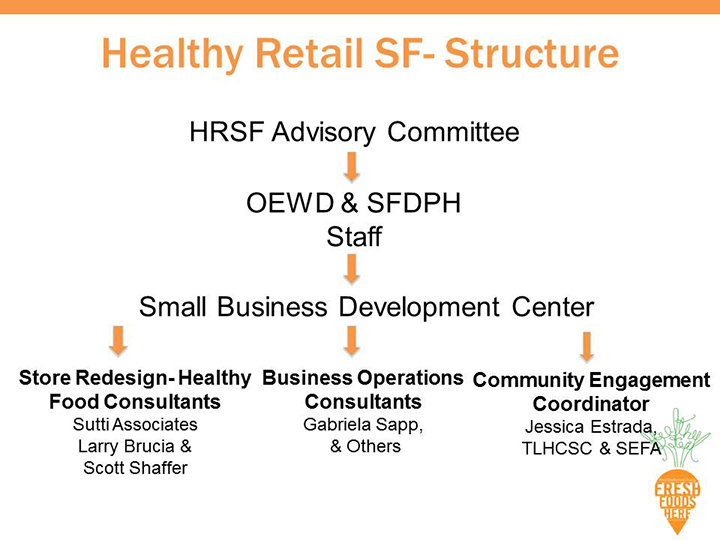
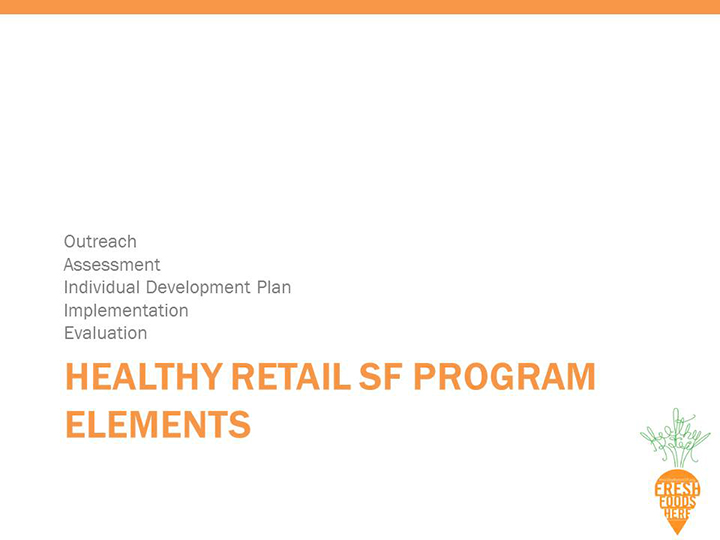
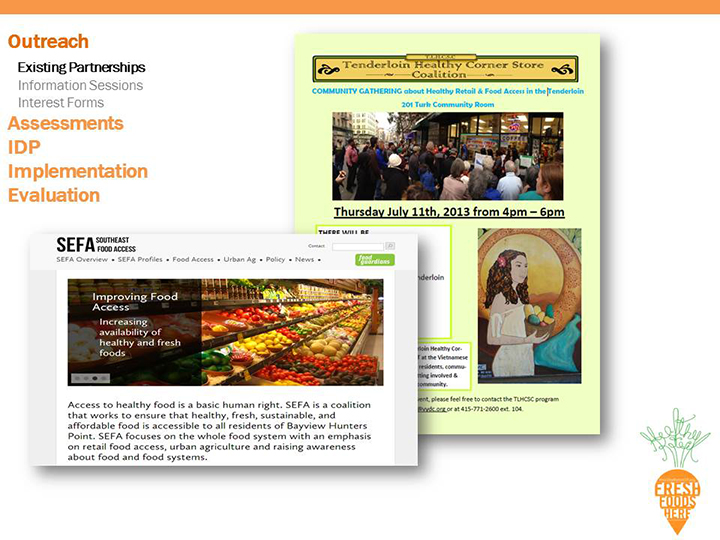
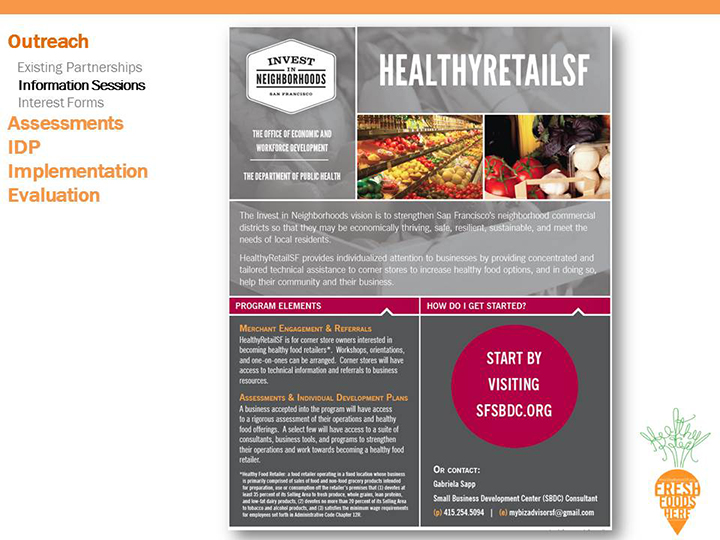
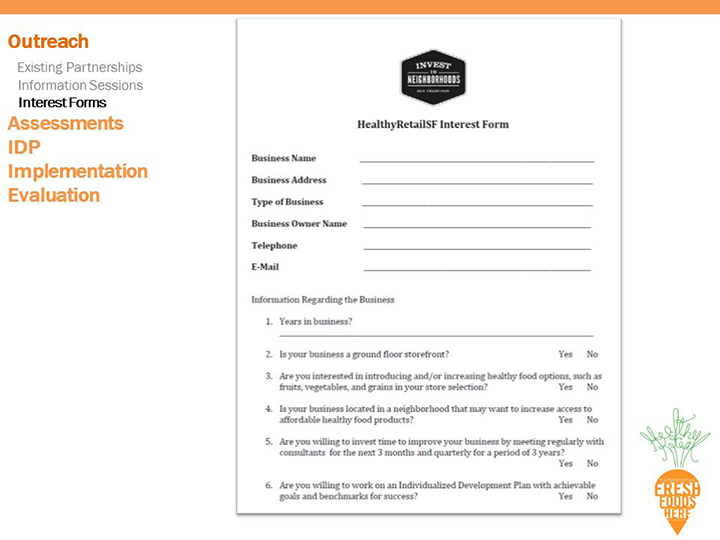

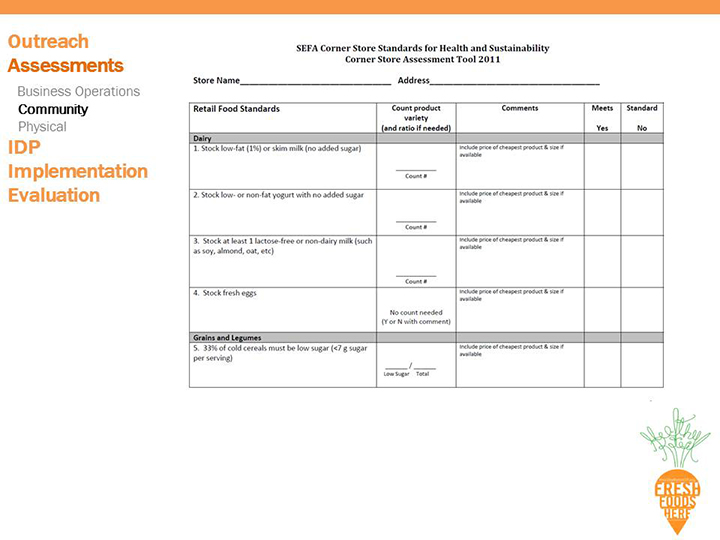
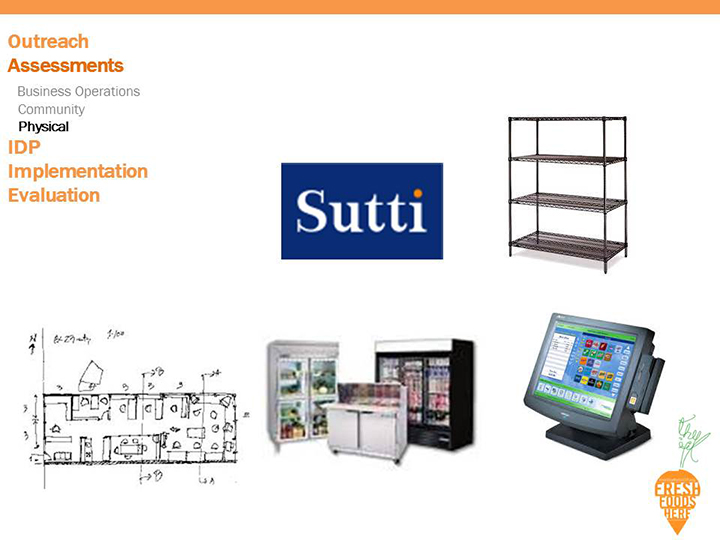
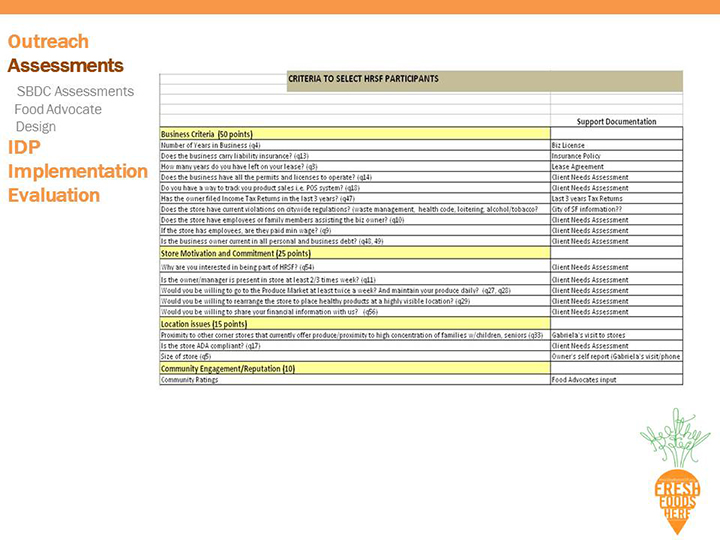
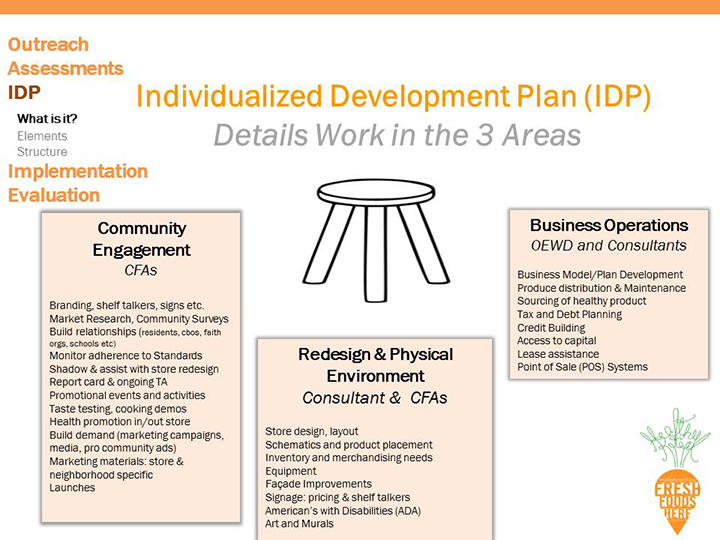
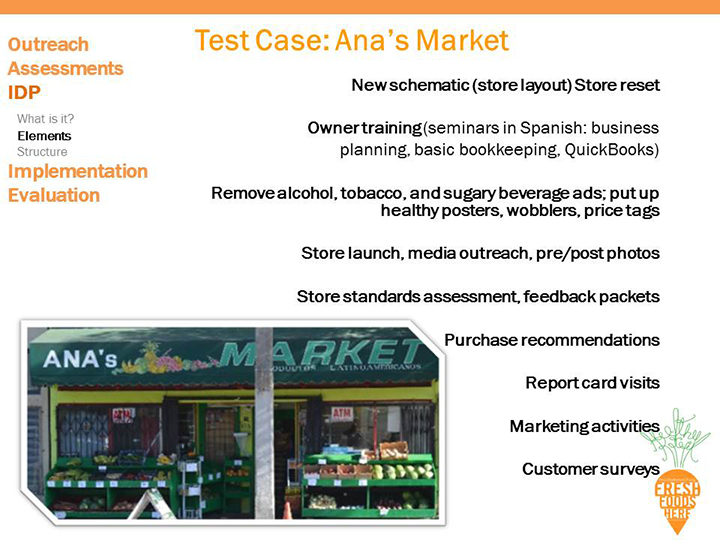
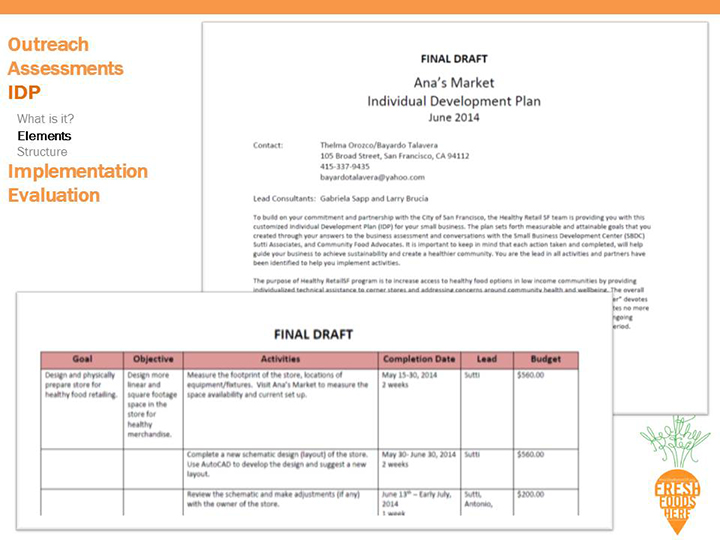
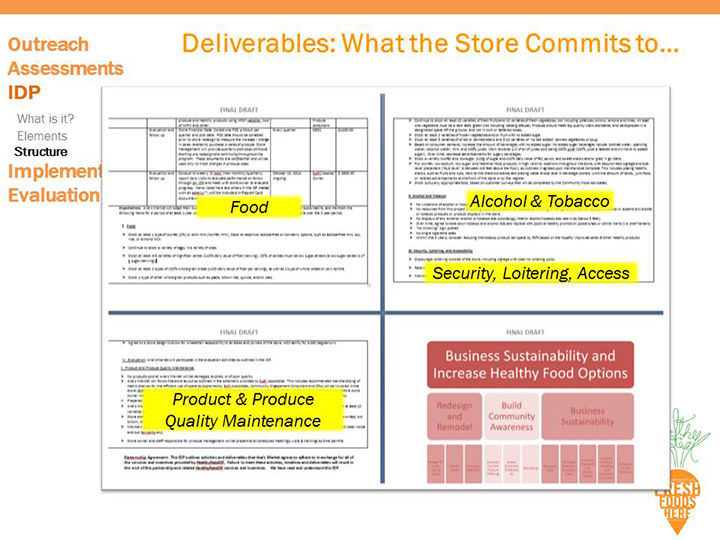
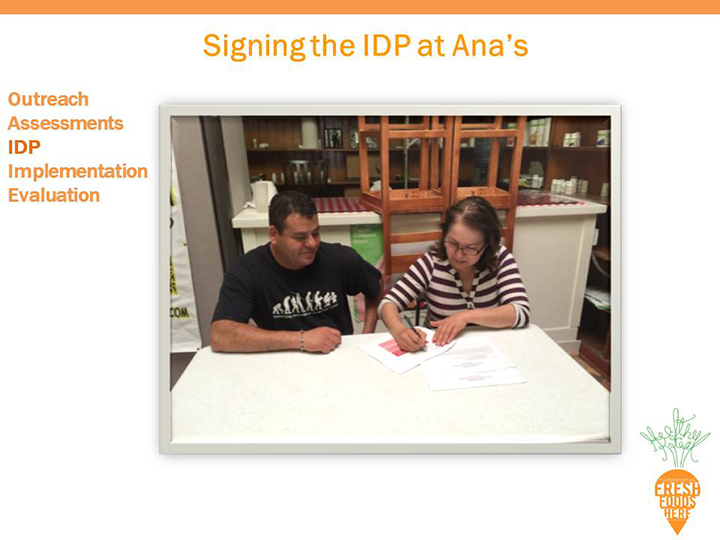
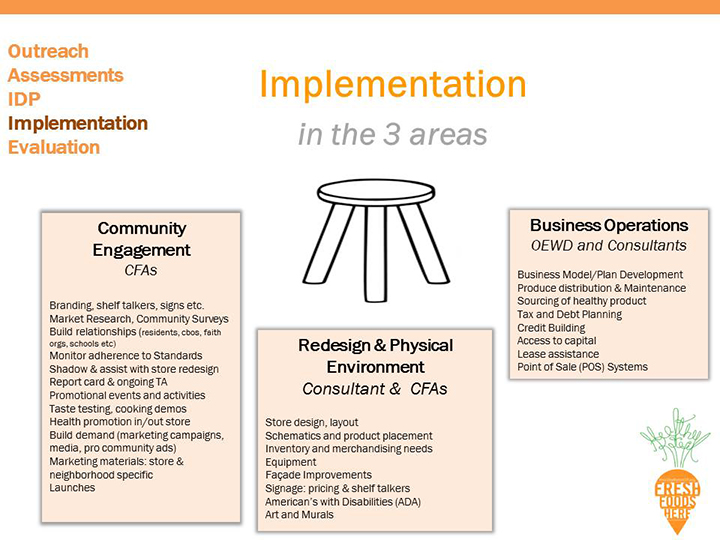
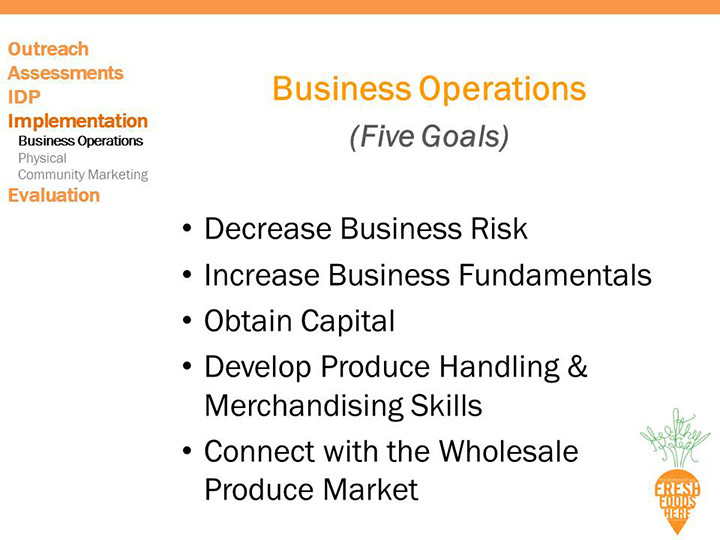
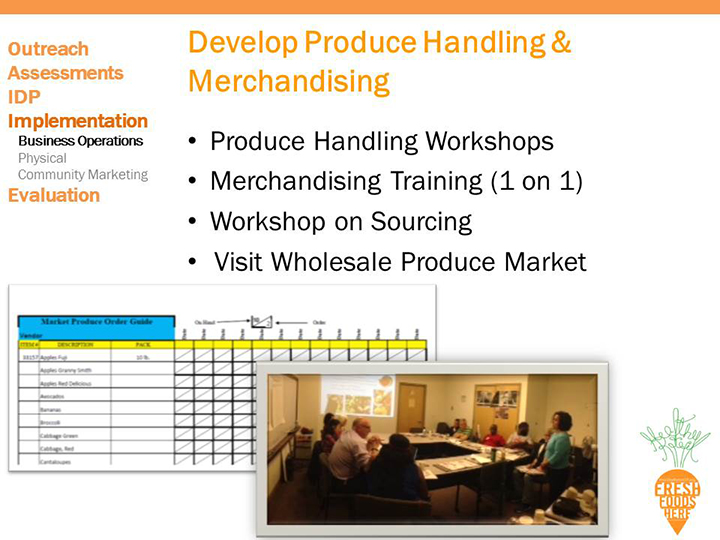
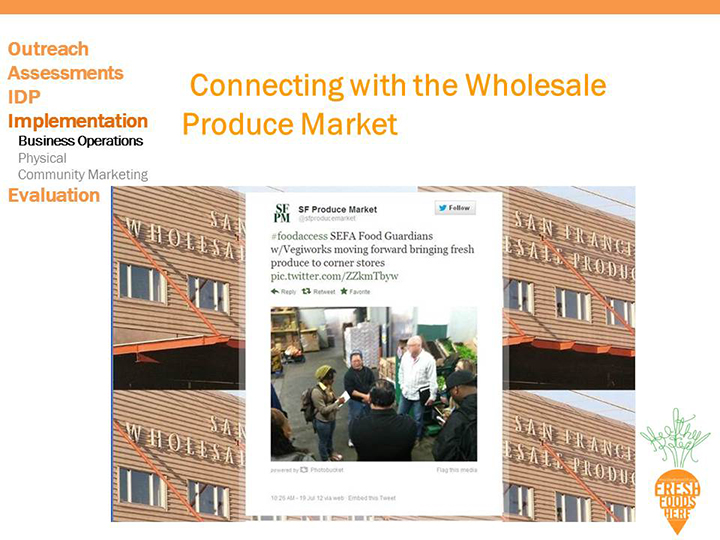
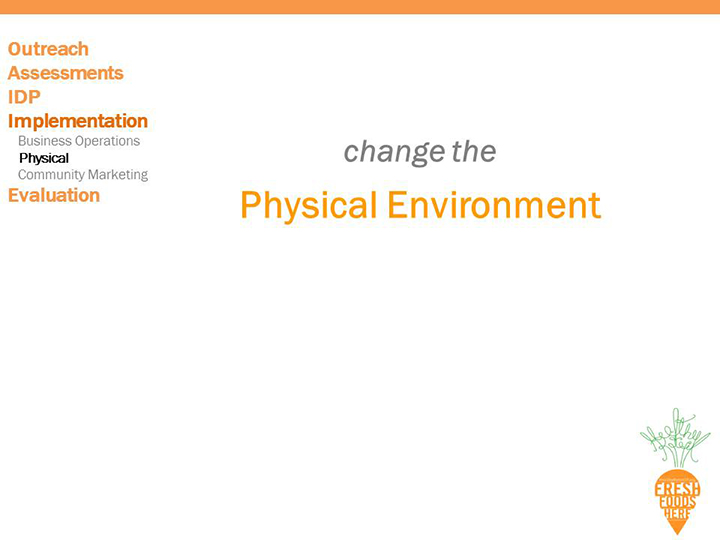
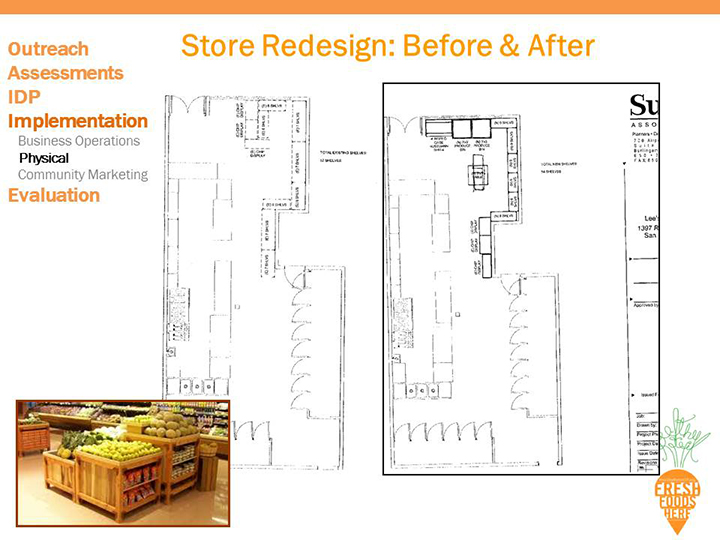
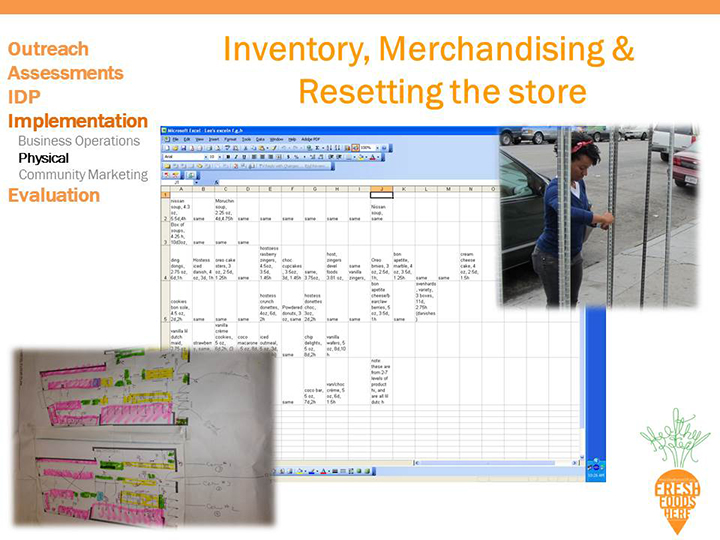
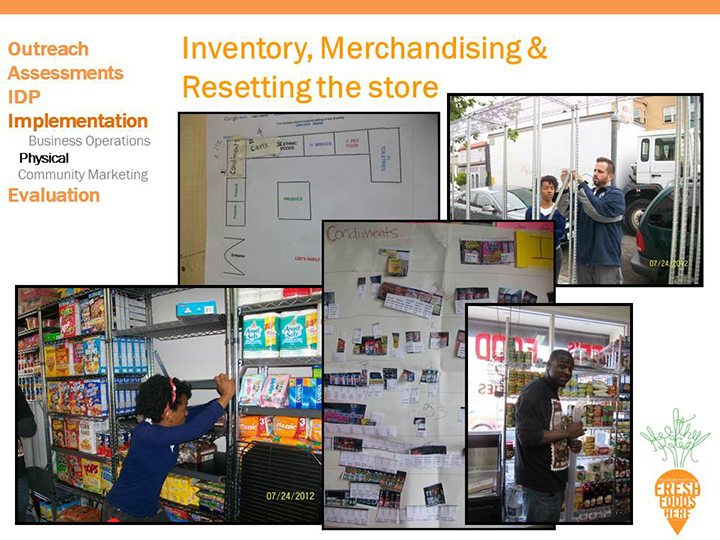

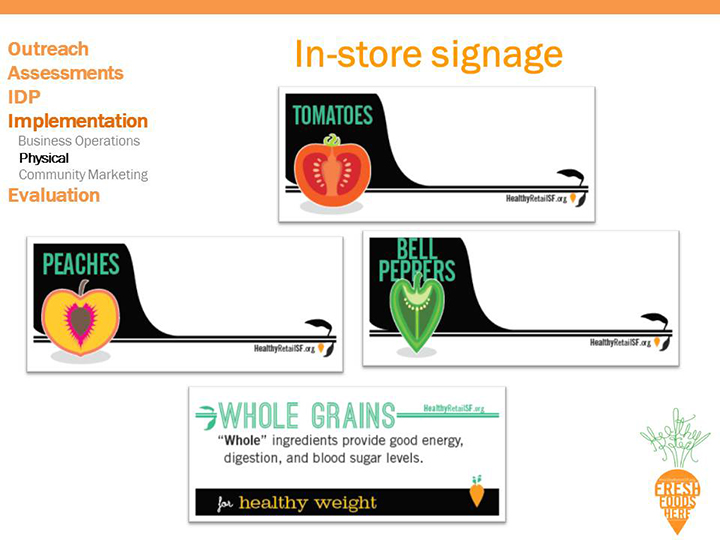
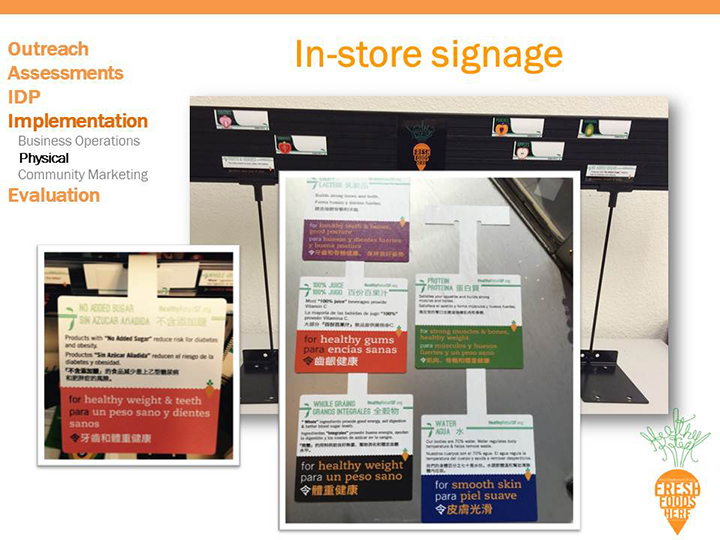
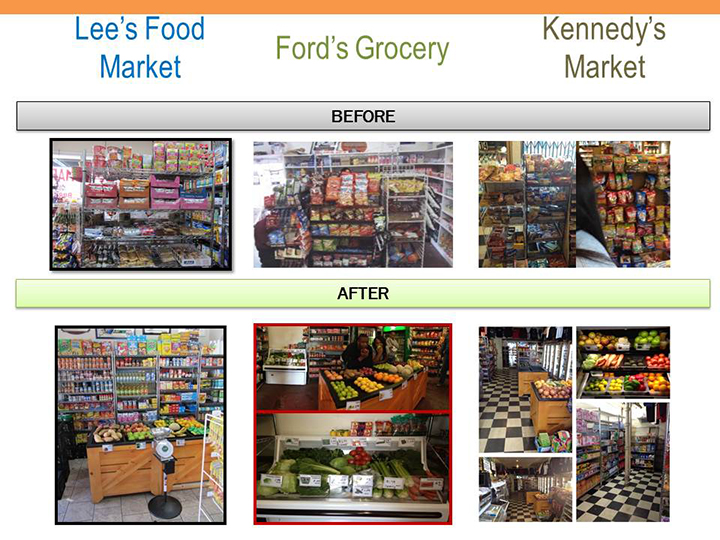
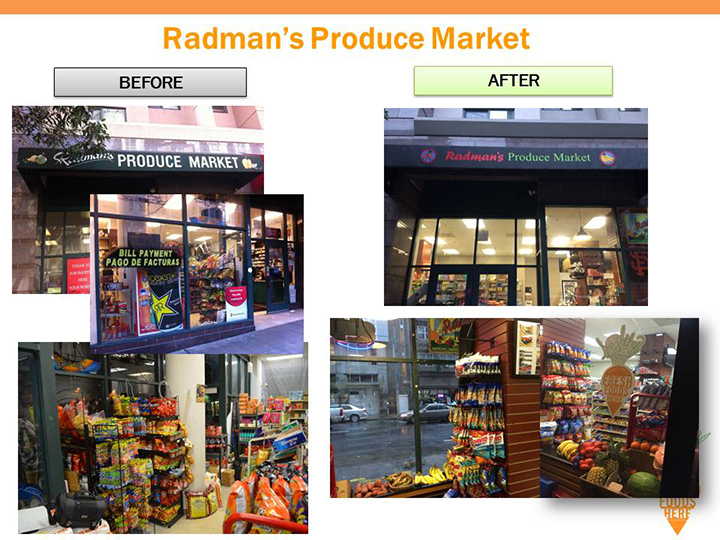
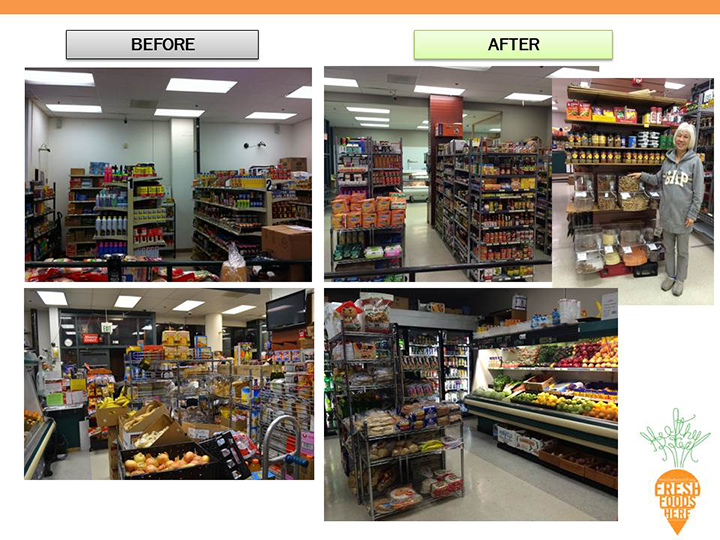


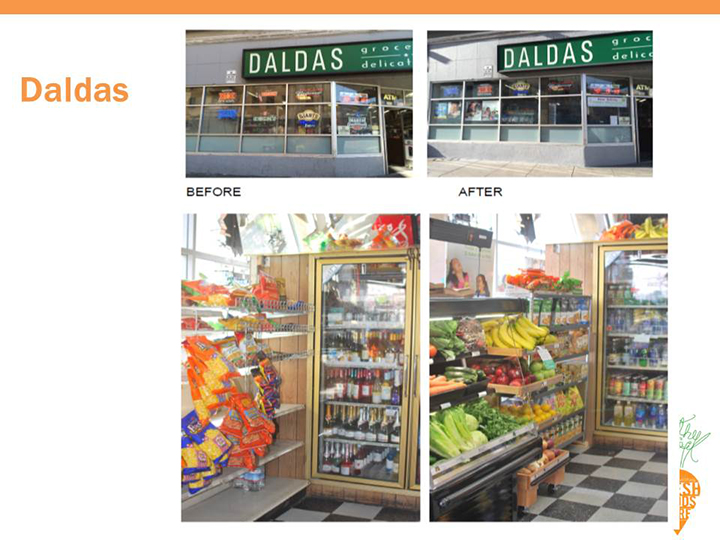
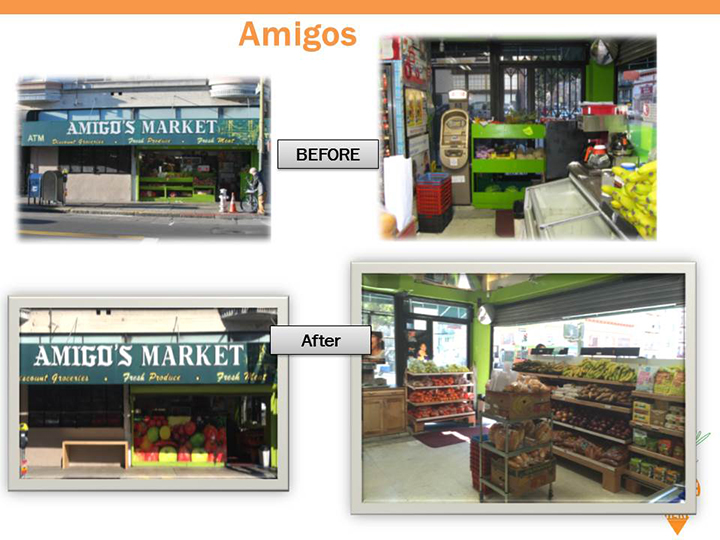
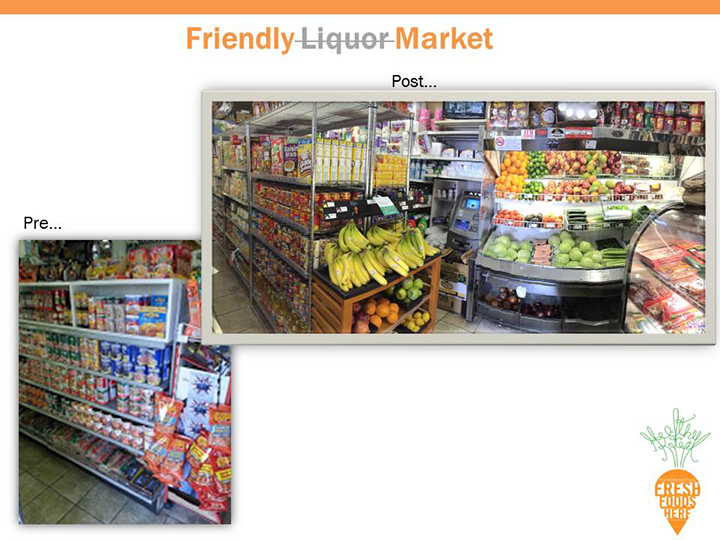
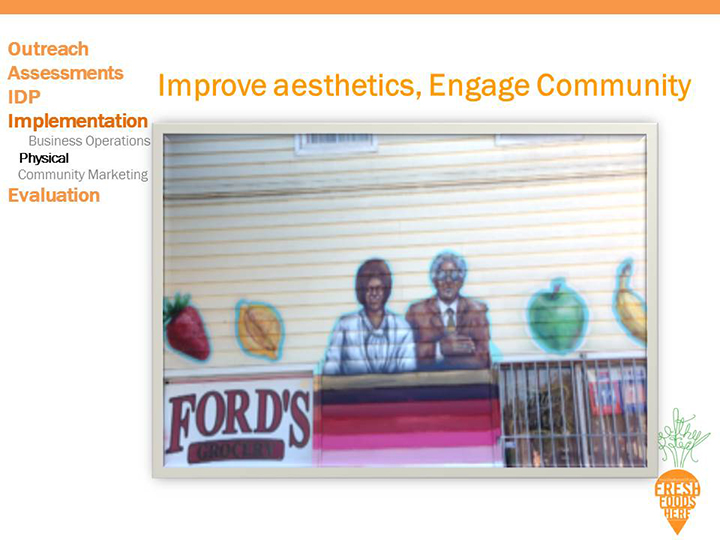
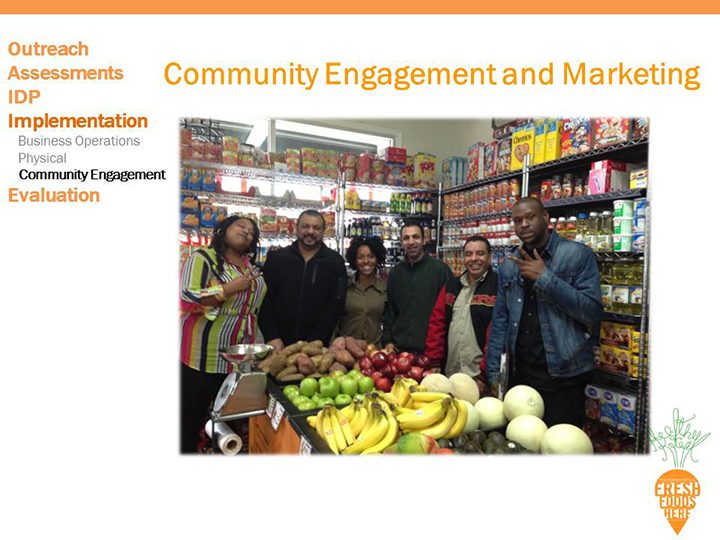
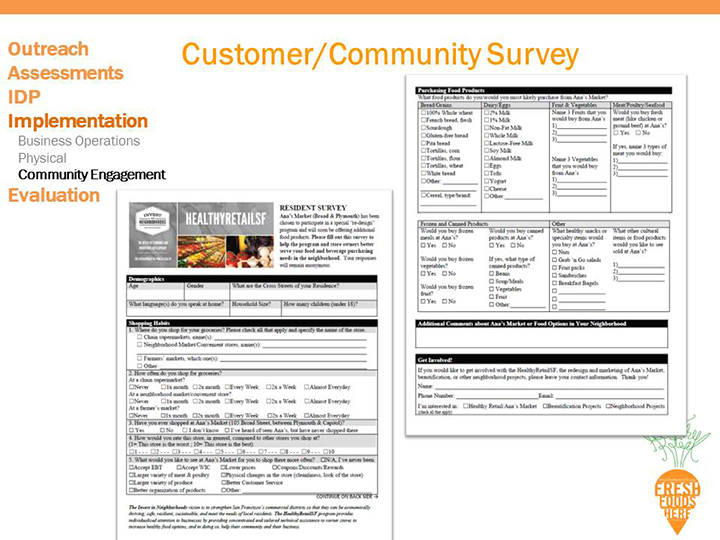
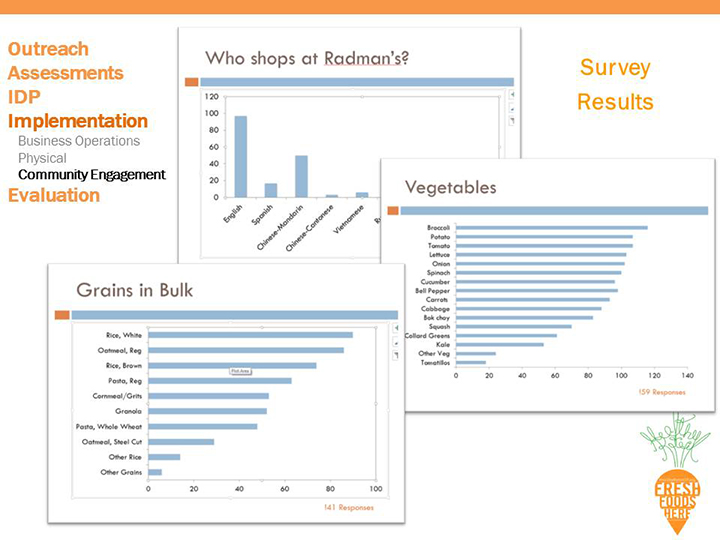
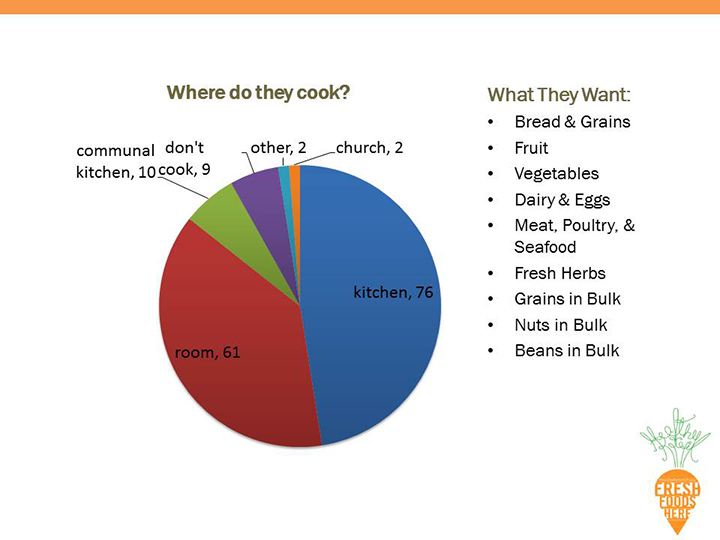
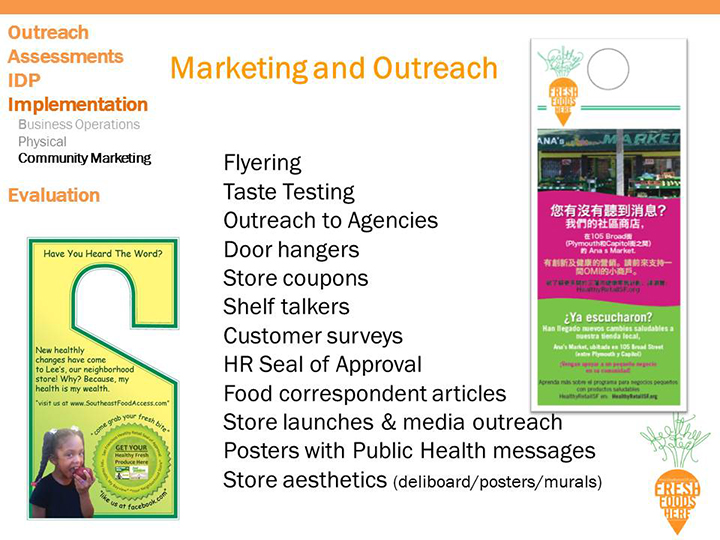
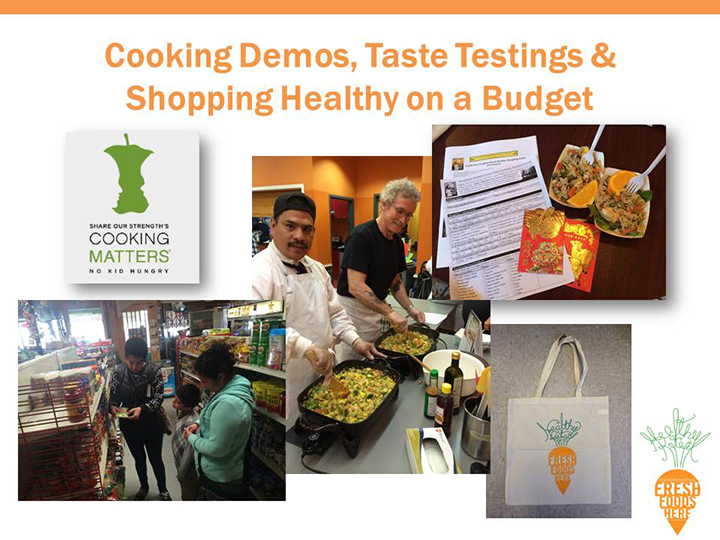
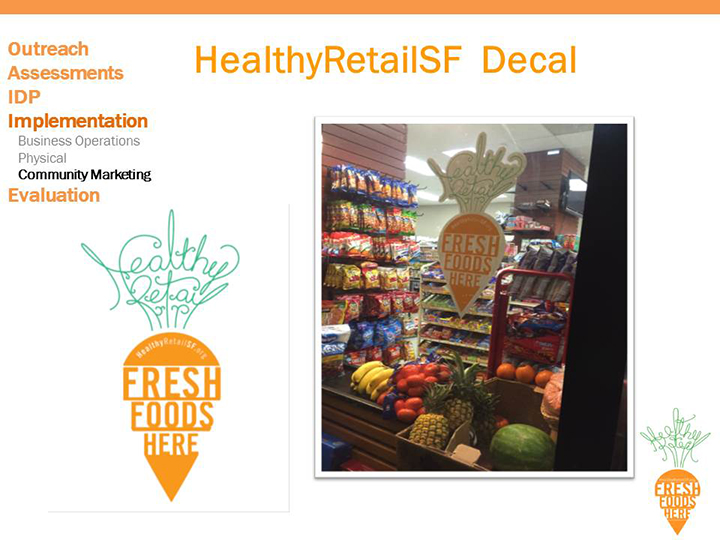
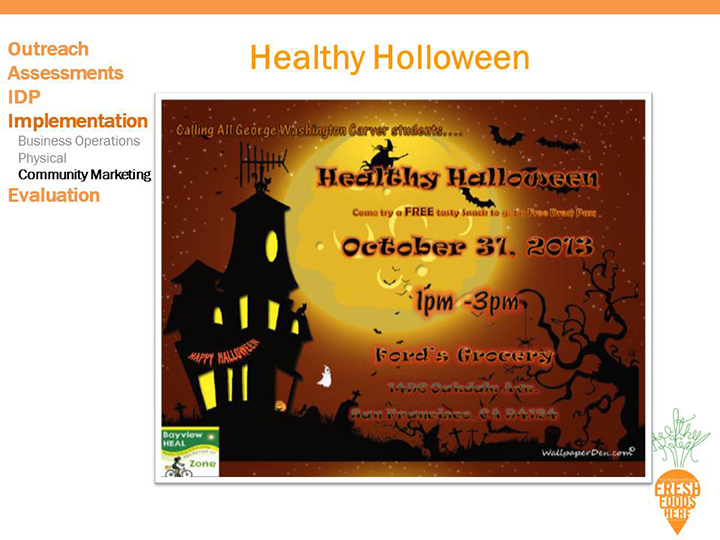
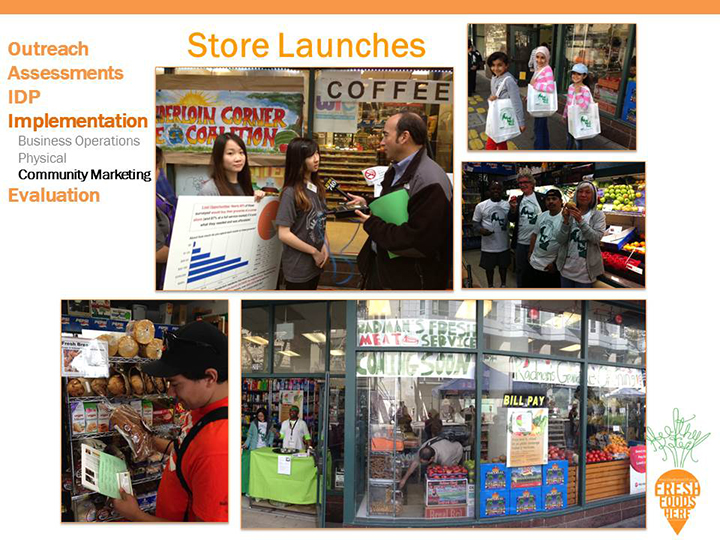
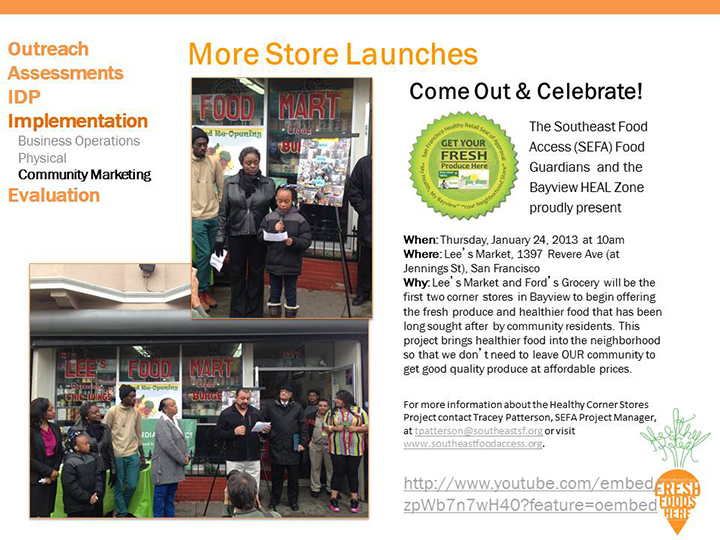
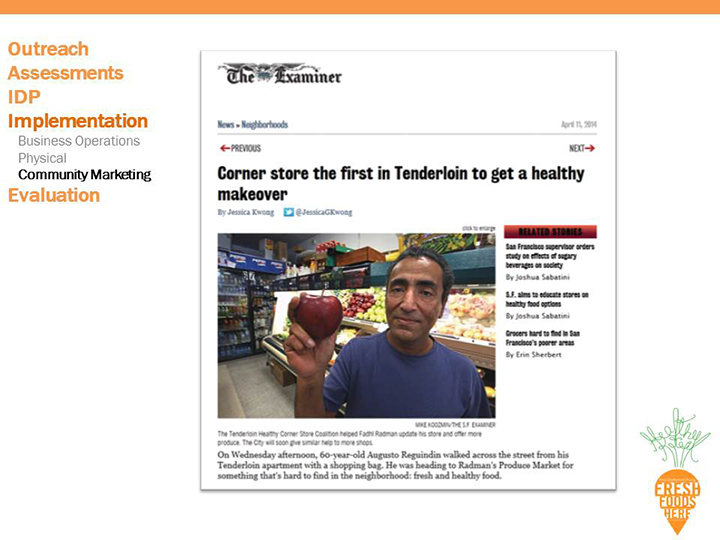
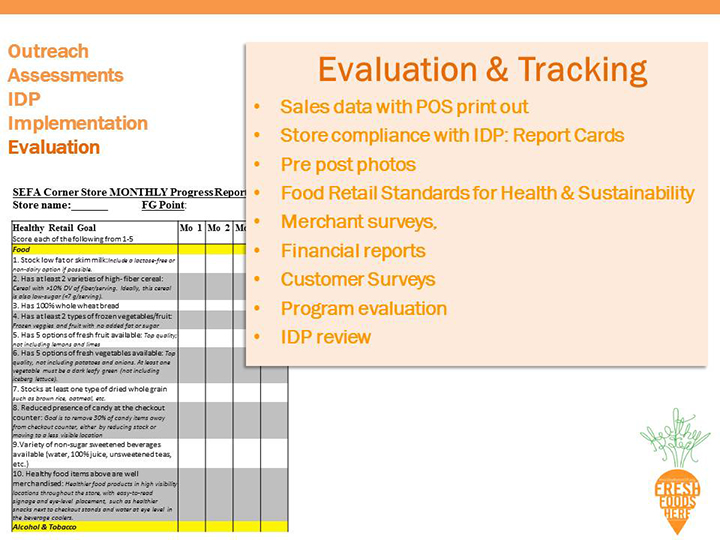
CLICK TO GO DIRECTLY TO...
- Why Healthy Retail (slides 1–6)
- The Healthy Retail Model & Program (slides 7–10)
- The 5 Program Elements (slide 11)
- Outreach (slide 12–14)
- Assessment (slide 15–18)
- Individualized Development Plan, IDP (slide 19–23)
- Implementation & Improving Business Operations (slide 24–27)
- Implementation & Changing the Physical Environment (slide 28–43)
- Implementation & Community Engagement/Marketing (slide 44–54)
- Evaluation (slide 55)
PARTNERS:
- EatSF provides a voucher program that some stores participate in to help consumers pay for produce.
- Shape Up SF is a multidisciplinary body convened to address the epidemic of chronic disease through primary prevention and environmental strategies, with an emphasis on physical activity and nutrition.
- Cooking Matters /18 Reasons Empowers our community with confidence and creativity to buy, cook and eat good food every day.
- Feeling Good Project, part of the Nutrition Services Program of the San Francisco Department of Public Health, aims to improve the nutritional well-being and physical activity of low income San Francisco residents by providing nutrition education to increase consumption of fruits and vegetables, promoting daily physical activity and providing information on the USDA Food Stamp Program.
.


